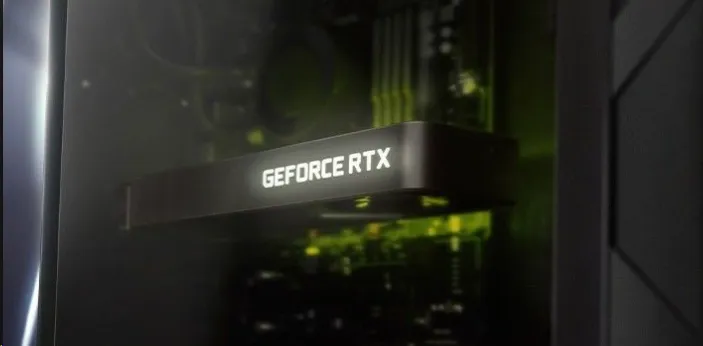Nvidia’s next-generation mainstream graphics card, the GeForce RTX 5060 Ti, is expected to officially launch on April 16th. According to hardware sources, this graphics card will be available in 8GB and 16GB versions. Concurrently, another model, the GeForce RTX 5060, is anticipated to debut in mid-May, featuring 8GB of GDDR7 memory, further enriching Nvidia’s product line.
The core specifications of the GeForce RTX 5060 Ti are highly anticipated. It will utilize the GB206-300 graphics processor, boasting 4608 CUDA cores, an upgrade from the previous generation’s GeForce RTX 4060 Ti’s 4352 cores. Paired with a 128-bit memory interface and GDDR7 memory speeds of up to 28 GT/s, its peak bandwidth can reach 448 GB/s, an approximately 55% increase compared to the RTX 4060 Ti’s 288 GB/s. This significant bandwidth increase is attributed to the application of GDDR7 technology, providing stronger support for high-resolution gaming and complex graphics tasks. The motherboard’s rated power consumption is 180W, slightly higher than the RTX 4060 Ti’s 160W, and may require an 8-pin or 16-pin power connector, depending on the manufacturer’s design.
Meanwhile, Nvidia also plans to launch the GeForce RTX 5060 and RTX 5050, two lower-tier graphics cards. The RTX 5060 is expected to feature 3840 CUDA cores and 8GB of GDDR7 memory, with a power consumption of 150W; while the RTX 5050 will use the GB207-300 core, with 2560 CUDA cores and 8GB of GDDR6 memory, and a power consumption of 130W. These products will further cover the mid-to-low-end market, catering to users with different budgets.
Belonging to the Blackwell family, the GeForce RTX 5070 utilizes the larger GB205-300 core, featuring 6144 CUDA cores and 12GB of GDDR7 memory, with a power consumption of 250W. The higher core count and wider 192-bit memory bus give the RTX 5070 a clear advantage in computing power. This means that although the RTX 5060 Ti has improvements in memory bandwidth and architecture optimization, its overall performance may not match the RTX 5070, especially in scenarios requiring extremely high computing power, such as 4K gaming or professional rendering.
Pricing will be a key factor in the RTX 5060 Ti’s appeal. The rumored MSRP for the RTX 5070 is $549, while the RTX 5060 Ti may be priced around $499. If this price is accurate, the RTX 5060 Ti will need to strike a balance between performance and cost, otherwise, consumers may prefer to pay an additional $50 for the RTX 5070. Furthermore, AMD’s Radeon RX 9070 series is also launching around the same time and is becoming a strong competitor with its ample video memory capacity and excellent performance. Increased market competition may force Nvidia to adjust its pricing strategy.

From a technical perspective, the RTX 5060 Ti’s Blackwell architecture brings several improvements. The new generation of GDDR7 memory not only increases bandwidth but also reduces latency, helping to maintain stable frame rates under heavy loads. Additionally, the increased CUDA core count and potential clock frequency optimizations will further enhance its graphics processing capabilities. Compared to the RTX 4060 Ti, the RTX 5060 Ti is expected to deliver approximately 20%-30% performance improvements in 1080p and 1440p gaming, especially in games that support DLSS 4 technology, where image quality and frame rates are expected to be further enhanced. However, for users seeking the ultimate 4K experience, the RTX 5060 Ti’s 128-bit memory bus and limited core count may still be insufficient.
Power compatibility is also a key concern for users. The RTX 5060 Ti’s 180W power consumption is relatively moderate, and existing 400W to 450W power supplies are generally sufficient to support a complete system. However, if paired with a high-end CPU or used for overclocking, it is recommended to choose a 500W or higher power supply to ensure stability. In contrast, the RTX 5070’s 250W power consumption places higher demands on the power supply, potentially requiring 600W or more of power support.
As the release date approaches, more details about the RTX 5060 Ti will gradually emerge. Whether it can stand out in terms of performance, price, and market competition remains to be seen. For gamers looking to upgrade their graphics cards, this product is undoubtedly worth close attention.
